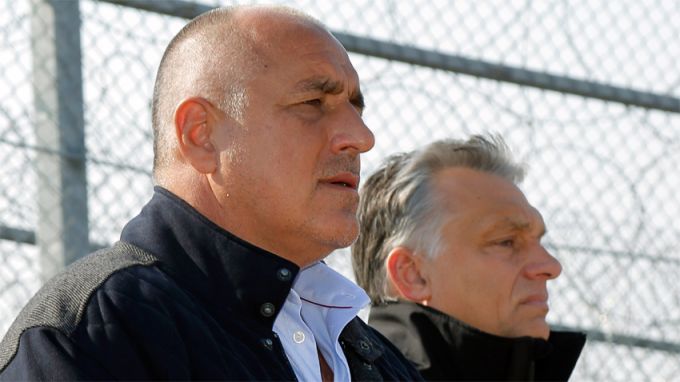
An event occurred on Tuesday and Wednesday that shed light on certain aspects of the most dire problem facing Europe and Bulgaria – migration. The prime ministers of Serbia and Hungary – Aleksander Vucic and Viktor Orban – paid a visit to this country. Orban and his Bulgarian counterpart Boyko Borissov inspected the Bulgarian-Turkish border and the country’s Black Sea aquatoria, with Viktor Orban conveying a message in this regard that was most categorical.
Orban was impressed by the way Bulgaria was guarding the EU’s external border and stated, rather emotionally, that it was there that the fate of Europe was being decided, not in Brussels. In his words, it was simple: if Turkey, which is not a member of the EU can be given 3 billion euro, then it is impossible that Bulgaria, which is, shall not be given 160 million. The 160 million in question is the sum PM Borissov will be demanding at the EU meeting in Bratislava on Friday, for coping with the migration crisis. He obtained Orban’s assurances that the Visegrad group would firmly support this demand and depending on the European support, would then decide what support Bulgaria should be given by the group.
Elated by Orban’s unequivocal words, the Bulgarian prime minister stated that on Friday it must clearly be said: Bulgaria will be helped with this sum of 160 million euro and only then should all procedures be broached, but that is what Bulgarians must hear. Because we have had enough of being told we are not alone, that Europe is there for us, that together we can do more, always together, onward, hurrah! Such a display of emotion is understandable in view of the fact that Bulgaria is alone in guarding the EU’s external border - the border with Turkey – a country that has accepted millions of refugees from Syria, but also migrants from Afghanistan and Iraq. That is why Borissov felt he had to explain that the fence put up along the border was not meant to be against Turkey but against the migrants, and lauded cooperation with the Turkish border authorities which has helped curb the migration flow. It may have been curbed, yet as it transpired recently, new locations are being looked for for the construction of refugee camps as the ones now in existence are full to capacity.
The fact that the President of Serbia Aleksander Vucic attended Tuesday’s meeting in Bourgas on the Black Sea, albeit for a brief few hours should be no surprise. Serbia lies along the so-called Balkan migration route towards central and Western Europe and even though it is not a member of the EU it is only logical that it should be consulted by its neighbours to the east and to the north on the migration issue at the summit in Bratislava. As a matter of fact Serbia tightened control along its border with Bulgaria and, as a result, quite a few illegal migrants were returned to this country.
In his capacity of envoy of the Visegrad group, Viktor Orban called on Brussels to render Bulgaria appreciable assistance for coping with the migration wave. Though indirectly, as something of a response to this, came the words by EU Commission President Juncker who called for the deployment of another 200 Frontex border guards as well as 50 vehicles along Bulgaria’s borders by the end of October. But will that be enough? In his annual State of the Union address at the European Parliament in Strasbourg, Juncker stated that ensuring Europe’s security was an absolute priority. Yet at the Orban-Borissov meeting it transpired that to ensure this kind of security will take very concrete financial and material resources. We shall have to wait for tomorrow’s meeting in Bratislava to see to what an extent Brussels subscribes to the Visegrad group’s views regarding Bulgaria.
English: Milena Daynova
Today, 26 October, has been declared a day of election silence in Bulgaria ahead of the snap elections for the 51st National Assembly. On this day, voters can reflect and decide how to vote. Since April 2021, this is the seventh early parliamentary..
The seventh election campaign in the political marathon of the past three years is drawing to a close. Have we heard any ideas for a way out of this crisis? Have the no longer surprising news of vote-buying attempts, which once again failed to reveal the..
If the general elections were to be held today, GERB-SDS would earn 24.5% of the votes, followed by Vazrazhdane with 13.7% and We Continue the Change – Democratic Bulgaria with 12.1%. BSP – United Left garners 8.8%, The Alliance for Rights and..
At today's session of MEPs opening in Strasbourg, the European Parliament will again call for full membership of Bulgaria and Romania in Schengen . The..
The members of Parliament are rather skeptical before yet another attempt to elect a National Assembly Speaker. The candidates for Speaker of the..

+359 2 9336 661
